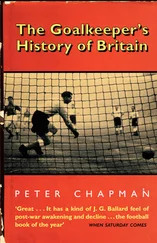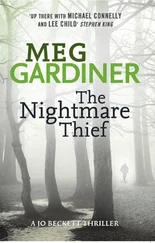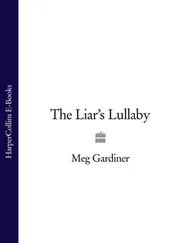A skilled wire-drawer, thirty-two years old, with a wife and one child aged five, who had been unemployed for over three years, had ‘little variety in our food since the staple ingredients are bread and butter and tea and cocoa and cheese. Until this year [1933] I had an allotment from which we obtained all our vegetables. A local factory bought the land and I have not yet been able to rent another. We have no garden attached to our house; we share a small back yard with five other houses … our rent is 5s6d a week.’
A twenty-five-year-old skilled letterpress printer who had been unable to find work since having a nervous breakdown after the death of his mother five years earlier, was in receipt of 15 s .3 d benefit. ‘How do I exist on my “magnificent bounty”? I pay 8s. for a furnished room which includes laundry. Gas costs 6d weekly; letters for situations 8d; razor blades, soap, shoe blacking, haircuts etc. average 3d; and 6d a week I save to help buy boots, second hand flannels etc. This leaves me 5s6d for food. Can a man keep up health and strength on such a sum? Emphatically no! … My breakfast consists of three slices of bread and jam and a cup of tea. Dinner, two slices of bread and about 2ozs cheese. Tea two boiled eggs, or ½lb tomatoes, or a tin of baked beans. If I have 2d left at the week-end (which isn’t often) I “mug” [treat] myself and buy some chip potatoes. I have not tasted meat, potatoes (barring the above occasions) or vegetables for over twelve months — and then I am told I get enough money to keep fit and strong.’ George Tomlinson, a Nottingham miner, unemployed for four years, explained that ‘The real secret of living on the dole [is] potatoes and bread.’
A Scottish hotel-worker, out of work since 1931, had the single man’s dole of seventeen shillings a week in 1933, and when he had paid his rent, coal and laundry he was left with 5 s .3 d , out of which he spent ‘about 1 shilling every week on stamps, stationery and typed copies of my references’; ‘In the cold wet months of a Glasgow winter … my meals, which were few and far between, consisted mostly of tea, bread and margarine,’ though he occasionally managed sixpence for some boiling mutton or 4½d for bacon.
Charles Graham, whose father, a merchant seaman, had died when he fell from a ship in dry dock in Australia, and whose stepfather, a miner, was out of work, recalled that his sister ‘had just one attic room and two children and with only one gas ring, she couldn’t cook an economical dinner. Parents would make soup with a bone, some cabbage, a few turnips and so on. But we usually had a slice of bread in the morning. For dinner a penn’orth of each, that’s a penn’orth of fish and a penn’orth of chips; and probably a couple of slices of bread at night … now and then with a penn’orth of pease pudding and a saveloy from the local German butcher.’ When, during the Second World War, Graham was taken prisoner of war by the Germans for two and a half years, he found his diet much the same as it had been in the ‘hungry thirties’.
Graham remembered his mother baking every Sunday (in most North Country families it seems to have been Wednesdays, with washdays on Monday and the Sabbath without work).
Most of us children would be out collecting orange boxes to stoke the fire. It was a great day, Sunday, because there was plenty of bread, and oven bottom cakes and scones, and so on. We used to buy rusty cans of cheap jam in the market. A housewife would go any distance to save a halfpenny. A halfpenny was a candle and that was four or five hours of light. We were lucky, we had a distant relative of my stepfather who was a butcher and he used to let us have some offcuts of meat at the weekends [a sheep’s head was another cheap meat bought for stewing]. Usually sausages was the nearest the average working class got to meat. One of the favourite meals was pan-haggerty. You slice potatoes, put a layer in the frying pan. Put scraps of bacon in the middle then a layer of sliced of potatoes again and fill it with water and just boil away. Or corned beef in the middle. Meat was scarce. I don’t ever remember having cheese except for weddings and funerals. And fresh milk was out of the question. It was mainly condensed milk [even though the tin was clearly marked ‘unfit for babies’].
John McNamara, an unemployed factory-worker, remembered: ‘Lancaster market used to be open till nine Saturday night, and whatever beef and pork sausages they had to sell, they had to get rid of. They couldn’t put it away over the weekend because there was no refrigeration, so it would go bad on them … especially in the summer months … so the stuff went right down to rock bottom prices.’ McNamara’s mother, ‘along with a lot of other married ladies knew this. That was the time they used to go and try and get a bit of meat for Sunday. They’d wait to the last minute. The butcher would practically throw it at them for next to nothing. The fruiterers never threw fruit away. If they’d gone bad, the bad part was cut out. What they called damaged fruit. There was nothing wrong with it but middle class people and the upper crust, they wouldn’t think of buying them. But to us it was a godsend. For twopence you could get a handful of damaged apples or oranges … The only time you would get to see a chicken was Christmas. But it had taken twelve months to get that chicken. Mam would find a penny from somewhere to put in the butcher’s shop and by the time the year end come she might have five bob.’
Those living on the poverty line or hovering just above it, whether as a result of unemployment, underemployment or simply low wages, lived a dreary life indeed, since ‘The minimum standard makes no allowance whatever for sickness, savings, old age or burial expenses, holidays, recreations, furniture, household equipment, drink, newspapers or postage.’ There was simply no margin; it was the breadline — and not always that.
With an endless struggle to find enough money to feed a family, it was hardly surprising that there was virtually no money left for anything else. And the longer a man had been out of work, the worse things got. Any small savings were used up, cooking pots, brushes, bedding, towels and clothes wore out. Families got into debt, some had to move to cheaper accommodation if they could find any, or face eviction. Economies on a budget that was already pared to the bone were made on heating and lighting, food got stodgier.
In Sunderland, Mrs Pallas’s husband had been ‘robust and he had a good job … But he fell out of work about four months after I was married, so I’ve hardly known what a week’s wage was.’ After thirteen years of unemployment and five children, the oldest boy’s trousers had six patches.
I just tell him, he’ll be all the warmer, specially in winter. My husband helps me with the darning; I do the patching. I’ve just put the eighth patch on a shirt of his. I take the sleeves out and put them in another — anything to keep going.
Then when we’ve finished with the clothes, my husband puts them into making a mat [a peg or rag rug, made by pushing strips of fabric through a sugar sack begged from the grocer or a potato sack]. Everything goes invests, stockings, linings.
Many a time my husband has had to make cups for the children out of empty condensed milk tins. He solders the handles on.
Our kettle’s got about six patches on it. My husband made the patches from cocoa tins. My husband does all that sort of patching, all the cobbling and hair cutting and spring cleaning …
My husband never changes his dole money, but although he doesn’t keep a halfpenny pocket money, we still can’t manage. And we don’t waste nothing. And there’s no enjoyment comes out of our money — no pictures, no papers, no sports. Everything’s patched and mended in our house.
Читать дальше












